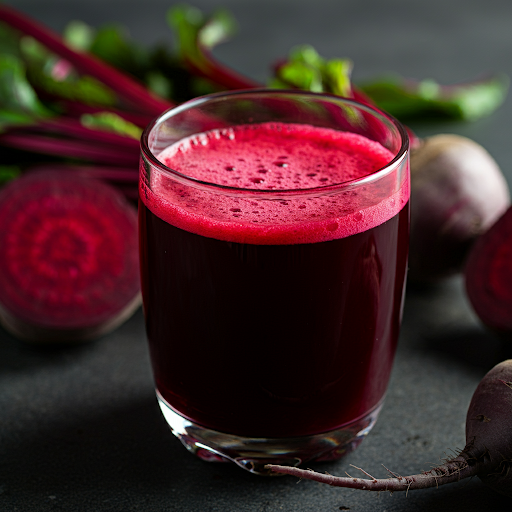
Review: Effects of Acute Beetroot Juice Supplementation on Master Rowers' Performance
Introduction
The search for legal and effective ergogenic aids in sports performance has led researchers to investigate various nutritional interventions. Beetroot juice (BRJ) has emerged as a promising supplement, particularly due to its high nitrate content. The study conducted by Garnacho-Castaño et al. (2024) specifically examines its effects on master rowers, addressing a crucial gap in our understanding of how older athletes might benefit from this supplementation.
Study Design and Methodology
The research employed a robust methodological approach with several key features:
- Design: Randomized, double-blind, crossover study
- Duration: 3 weeks total (including one week for procedure explanation)
- Sample: 10 well-trained male master rowers (age range: 30-48 years)
- Protocol: Two rowing ergometer sessions separated by a 7-day washout period
- Timing: BRJ or placebo consumed 3 hours before testing
- Distance: 2000-meter simulated rowing test
Key Findings
The study revealed several significant outcomes:
- Performance Enhancement:
- 4-second improvement in time trial performance (p ≤ 0.05)
- Consistent performance boost across participants
- Statistically significant improvement compared to placebo
- Physiological Adaptations:
- Increased relative VO2max by 2.10 mL·kg-1·min-1
- Improved absolute VO2max by 0.16 L·min-1
- Both changes were statistically significant (p ≤ 0.05)
- Non-Significant Findings:
- No meaningful changes in ventilatory efficiency
- Blood lactate concentrations remained similar between conditions
Physiological Mechanisms
The observed benefits of BRJ supplementation can be attributed to several physiological mechanisms:
- Nitric Oxide Production:
- BRJ's high nitrate content converts to nitric oxide
- Enhanced vasodilation and blood flow
- Improved oxygen delivery to working muscles
- Mitochondrial Efficiency:
- Reduced oxygen cost of exercise
- Enhanced ATP production efficiency
- Improved exercise economy
Implications for Master Athletes
This research has several important implications for master athletes:
- Practical Supplementation Strategy: The study demonstrates that BRJ can be effectively incorporated into pre-competition nutrition protocols
- Age-Specific Benefits: Shows that older athletes can still benefit from nitrate supplementation
- Performance Enhancement: The 4-second improvement could be significant in competitive scenarios
- Safety: No adverse effects were reported, suggesting safety for this population
Study Strengths and Limitations
Strengths:
- Robust methodological design (randomized, double-blind, crossover)
- Well-controlled conditions
- Specific population focus (master rowers)
- Comprehensive physiological measurements
Limitations:
- Relatively small sample size (n=10)
- Male-only participants
- Limited age range within master category
- Single-dose protocol
Future Research Directions
Several areas warrant further investigation:
- Dose-response relationships in master athletes
- Gender-specific effects
- Long-term supplementation protocols
- Performance effects across different age ranges within master athletes
- Combination with other ergogenic aids
Practical Applications
For coaches, athletes, and practitioners, this research suggests:
- Timing: Administer BRJ approximately 3 hours before competition
- Population: Suitable for well-trained master athletes
- Expected Benefits: Improved performance and aerobic capacity
- Competition Strategy: Potential use in time-trial events
Conclusion
This study makes a significant contribution to our understanding of ergogenic aids in master athletes. The findings support the use of acute beetroot juice supplementation as an effective strategy for improving performance in well-trained master rowers. The demonstrated improvements in both time trial performance and maximal oxygen uptake suggest that nitrate supplementation remains effective in older athletes, though the mechanisms may differ from younger populations. While questions remain regarding optimal dosing strategies and long-term effects, this research provides strong evidence for the inclusion of beetroot juice in the nutritional strategies of master athletes, particularly in preparation for competition.
Further research should focus on expanding these findings to different age groups, investigating gender-specific responses, and determining optimal supplementation protocols for master athletes. The positive results from this study open new avenues for performance enhancement in older athletes while maintaining safety and legality in sport!!!
